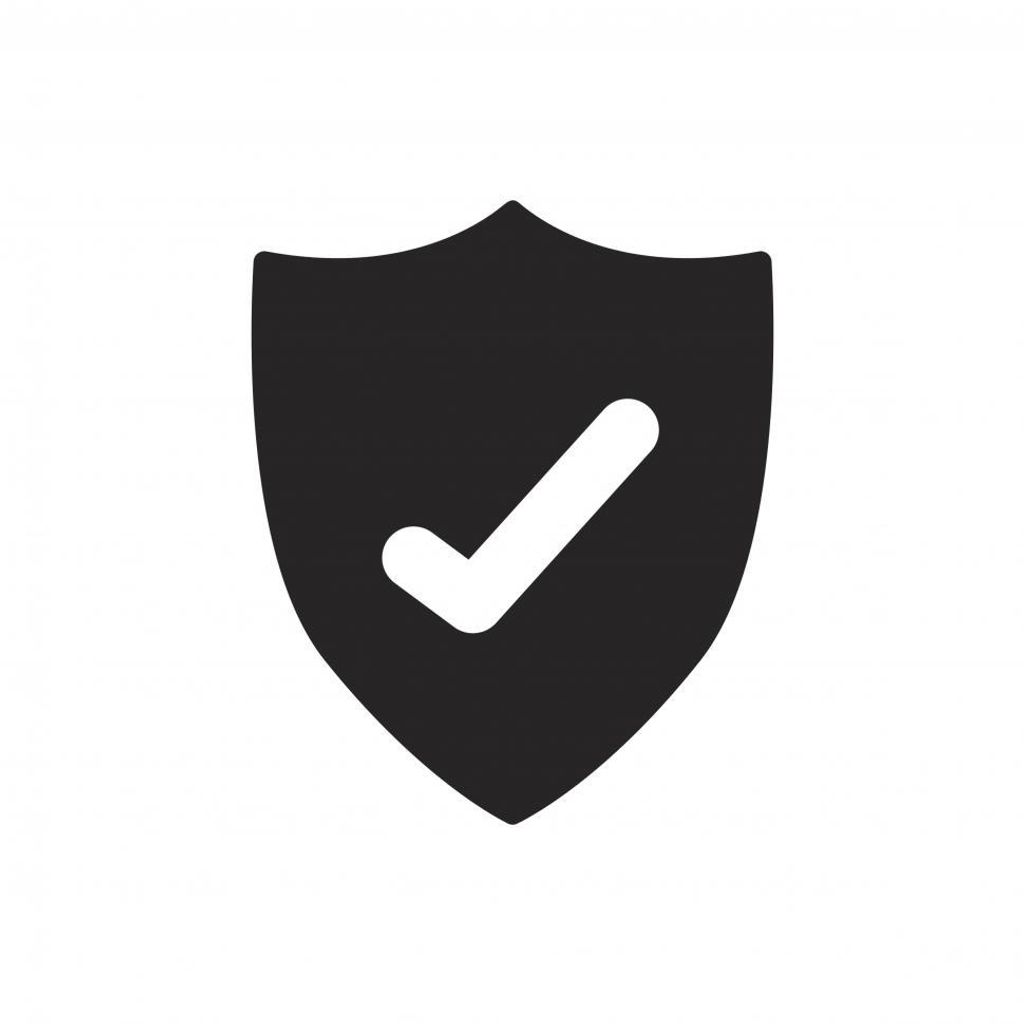Website security is a critical aspect of running an online business. Neglecting website security can lead to various risks, including data breaches and the compromise of sensitive information. It is essential to choose the right website security solutions that provide robust protection against common vulnerabilities. Implementing secure authentication measures, such as strong passwords and two-factor authentication, adds an extra layer of protection. Securing website data and transactions through encryption and SSL certificates is crucial to safeguarding sensitive information. Protection against malware and hackers can be achieved through malware detection and removal tools, as well as firewall and intrusion detection systems. Regularly updating and patching your website is also essential in maintaining its security. By following these affordable website security solutions, you can protect your online business and ensure the safety of your customers’ data.
Key Takeaways
- Choose website security solutions that offer robust protection against common vulnerabilities.
- Implement secure authentication measures, such as strong passwords and two-factor authentication.
- Secure website data and transactions through encryption and SSL certificates.
- Protect against malware and hackers with malware detection and removal tools, as well as firewall and intrusion detection systems.
- Regularly update and patch your website to maintain its security.
Understanding the Importance of Website Security
The Risks of Neglecting Website Security
Data breaches occur for a number of reasons, ranging from weak coding standards to subpar encryption that exposes the data and files in transit between your computer and your server or between visitors and their web browser. Once that connection is breached, attackers have a much easier time gaining access and wreaking havoc. When in doubt, be sure to reach out to your hosting provider and ask for help.
Here are some common website security vulnerabilities:
- SQL injections
- Cross-site scripting
- Cross-site request forgery
- Brute-force attacks
- Broken authentication
- Insecure direct object references
- Sensitive data exposure
- Using code with known vulnerabilities
It’s important to address these vulnerabilities and implement robust security measures to protect your website and your customers’ data.
Common Website Security Vulnerabilities
Cross-site request forgery Brute-force attacks Broken authentication Insecure direct object references Sensitive data exposure Using code with known vulnerabilities
As you can see, data breaches occur for a number of reasons, ranging from weak coding standards to subpar encryption that exposes the data and files in transit between your computer and your server or between visitors and their web browser. Once that connection is breached, attackers have a much easier time gaining access and wreaking havoc. When in doubt, be sure to reach out to your hosting provider and ask for help. Websites are a need to use a website builder to design and launch your site, chances are you aren’t going to effectively protect a VPS or dedicated server. However, that doesn’t mean shared hosting customers are not vulnerable. With hundreds or thousands of other websites residing on the same server, you’re counting on everyone adhering to stringent coding standards and security best practices. It’s rare, but one compromised site can expose the entire server to an attack.
The Impact of Website Security Breaches
Data breaches can have severe consequences for businesses, including financial losses, damage to reputation, and loss of customer trust. The effects of a breach can be costly and hard to control, with potential repercussions such as restitution to customers, fines from regulators, closer scrutiny, and decreased sales. It is crucial for businesses to take proactive measures to safeguard their online presence and protect against vulnerabilities. Secure hosting solutions are available to protect websites from malicious or criminal attacks, regardless of server configuration. Implementing these solutions is essential for ensuring the long-term success and security of your online business.
In addition to secure hosting, it is important to address common vulnerabilities that can lead to breaches. These vulnerabilities include cross-site request forgery, brute-force attacks, broken authentication, insecure direct object references, sensitive data exposure, and the use of code with known vulnerabilities. Weak coding standards and inadequate encryption can also contribute to breaches. To mitigate these risks, it is recommended to follow best practices and seek assistance from hosting providers when needed.
Business owners and entrepreneurs are particularly vulnerable to data breaches. In 2020, WPBeginner founder Syed Balkhi experienced a digital fraud that nearly cost him $1.4 million. With the help of the Department of Homeland Security, he was able to recover most of the funds. This incident highlights the importance of using comprehensive online security solutions to prevent identity theft and financial fraud. Protecting your website domain and financial information is crucial for the security of your business.
To ensure the security of your website, it is essential to have a multi-layered approach. This includes implementing secure authentication measures such as strong passwords and two-factor authentication. Encrypting sensitive data and using SSL certificates for secure online transactions are also important steps. Regularly updating and patching your website’s software is crucial for addressing vulnerabilities and staying protected against emerging threats. By taking these measures, you can minimize the risk of security breaches and protect your online business.
Choosing the Right Website Security Solutions
Factors to Consider When Selecting Website Security Solutions
When choosing website security solutions, it is important to consider several factors that will ensure the protection of your online business. Security features should be a top priority, and it is recommended to look for solutions that offer the following:
- SSL certificate: This ensures secure communication between the website and its visitors, protecting sensitive information.
- Malware and virus scanner: Regular scanning and detection of malicious software is crucial to prevent security breaches.
- Automatic backups and restores: Having backups of your website’s data allows for quick recovery in case of an attack.
- Server and/or application firewalls: These provide an additional layer of protection by filtering out malicious traffic.
- Network monitoring: Constant monitoring of network activity helps detect and prevent any unauthorized access.
- DDoS protection: Protection against Distributed Denial of Service attacks ensures that your website remains accessible even during high traffic periods.
Additionally, it is important to consider the cost and ease of use of the security solution. Finding a balance between your business’ security needs and budget is essential. Look for solutions that offer advanced features that are relevant to your business without unnecessary costs. User-friendly interfaces, centralized management, automated updates, and remote access are also important factors to consider for easy management of the security solution without disrupting business operations.
Top Features to Look for in Website Security Solutions
When choosing website security solutions, it is important to consider the following top features:
- SSL certificate: Ensure that the solution offers SSL certificates to encrypt data and provide secure communication between the website and its users.
- Malware and virus scanner: Look for a solution that includes a reliable malware and virus scanner to detect and remove any malicious software.
- Automatic backups and restores: Having automatic backups and restores can help protect your website in case of data loss or security breaches.
- Server and/or application firewalls: A solution with server and/or application firewalls can help prevent unauthorized access and protect against various types of attacks.
- Network monitoring: Look for a solution that provides network monitoring to detect and respond to any suspicious activities.
- DDoS protection: DDoS protection is essential to defend against distributed denial-of-service attacks that can disrupt your website’s availability.
- Spam filters for email: Ensure that the solution includes spam filters for email to prevent phishing attempts and other email-based threats.
- Domain name privacy: Look for a solution that offers domain name privacy to protect your personal information from being publicly accessible.
By considering these top features, you can choose a website security solution that provides comprehensive protection for your online business.
Implementing Secure Authentication Measures
The Role of Strong Passwords in Website Security
Placing strong passwords and multifactor authentication can go a long way in protecting your assets against threats online. Passwords should be changed regularly and be made difficult to ensure their strength. Make sure it isn’t written down anywhere as these can be misused by people. 2-factor authentication refers to having a strong password and one additional factor that is used for verification and authentication of your identities like a security question, OTP, or even biometrics.
Two-Factor Authentication: Adding an Extra Layer of Protection
Two-factor authentication (2FA) is a crucial security measure that adds an extra layer of protection to your online accounts. It involves using a strong password and one additional factor for verification and authentication, such as a security question, one-time password (OTP), or biometrics. By requiring two factors to access an account, 2FA significantly reduces the risk of unauthorized access.
Implementing 2FA is relatively simple and can be done by enabling it in your account settings or using a trusted authentication app. Here are some key benefits of using 2FA:
- Enhanced security: With 2FA, even if someone manages to obtain your password, they would still need the second factor to gain access to your account.
- Protection against phishing attacks: Phishing attacks, where hackers trick users into revealing their login credentials, are a common threat. 2FA adds an extra layer of protection by requiring a second factor that is not easily obtainable through phishing.
- Mitigation of password vulnerabilities: Passwords are often the weakest link in security. By using 2FA, the reliance on passwords alone is reduced, making it harder for attackers to compromise your accounts.
Tip: When setting up 2FA, choose a strong second factor and avoid using easily guessable security questions or common OTP methods. Additionally, regularly review and update your 2FA settings to ensure maximum security.
Securing Website Data and Transactions
Encrypting Data: Safeguarding Sensitive Information
Data encryption is crucial for safeguarding sensitive information. By enabling encryption of data both at rest and in transit using Transport Layer Security (TLS), you can secure data in transit and protect it from being hacked and exploited. Encryption keys can be used to encrypt data at rest, ensuring the security of backed up or stored data. Additionally, deploying malware and virus scanners is essential to detect and stop any malicious threats to your system, preventing serious damage to the system and the data stored within it. Lastly, training employees in the best practices for maintaining good cybersecurity is prudent.
Securing Online Transactions: SSL Certificates and Payment Gateways
Securing online transactions is crucial for protecting sensitive customer information and ensuring the trustworthiness of your website. One of the key components in securing online transactions is the use of SSL certificates. An SSL certificate encrypts the data exchanged between a user’s browser and your website, making it nearly impossible for hackers to intercept and decipher the information.
In addition to SSL certificates, it is important to choose a reliable payment gateway that provides secure and encrypted payment processing. A payment gateway acts as a middleman between your website and the financial institutions, ensuring that the payment information is transmitted securely.
To further enhance the security of online transactions, consider implementing the following measures:
- Use a secure and trusted payment processor that complies with industry standards.
- Regularly monitor and update your website’s security protocols to stay ahead of emerging threats.
- Educate your customers about the importance of secure online transactions and provide tips on how to identify and avoid potential scams.
Remember, securing online transactions is not only crucial for protecting your customers but also for maintaining the reputation and success of your online business.
Protecting Against Malware and Hackers
Detecting and Removing Malware from Your Website
Detecting and removing malware from your website is crucial for maintaining the security and integrity of your online business. Malware can cause significant damage to your website, including stealing sensitive information, injecting malicious code, and disrupting the user experience.
To effectively detect and remove malware, consider the following steps:
- Regular Scanning: Implement a regular scanning schedule using a reliable malware scanner tool. This will help identify any malicious files or code present on your website.
- Malware Removal: If malware is detected, take immediate action to remove it. Depending on the severity of the infection, you may need to manually remove the malicious files or use a specialized malware removal tool.
- Website Security Audit: Conduct a comprehensive security audit of your website to identify any vulnerabilities that may have allowed the malware to infiltrate. Address these vulnerabilities to prevent future infections.
Tip: It’s important to regularly update your website’s software and plugins to ensure you have the latest security patches and bug fixes. Additionally, educate yourself and your team about common phishing techniques and other social engineering tactics used by hackers to gain unauthorized access to your website.
By following these steps and implementing robust security measures, you can effectively detect and remove malware from your website, protecting your online business and maintaining the trust of your customers.
Preventing Hacking Attempts: Firewall and Intrusion Detection Systems
Firewall and intrusion detection systems are essential components of a robust website security strategy. A firewall acts as a barrier between your website and potential threats, monitoring incoming and outgoing network traffic to block unauthorized access. It analyzes data packets and applies predefined rules to determine whether to allow or deny access. By implementing a firewall, you can prevent unauthorized access to your website and protect sensitive information.
Intrusion detection systems (IDS) complement firewalls by actively monitoring network traffic for suspicious activity. They analyze network packets, log events, and generate alerts when potential security breaches are detected. IDS can detect various types of attacks, including port scanning, denial of service (DoS), and SQL injection. By promptly identifying and responding to security incidents, IDS helps prevent hackers from gaining unauthorized access to your website.
To enhance the effectiveness of firewall and IDS, consider the following best practices:
- Regularly update firewall and IDS software to ensure they have the latest security patches and threat intelligence.
- Configure firewall rules to only allow necessary network traffic and block all other traffic by default.
- Implement intrusion prevention systems (IPS) that can actively block suspicious traffic based on predefined rules.
- Monitor firewall and IDS logs regularly to identify any unusual patterns or signs of compromise.
By implementing firewall and intrusion detection systems and following best practices, you can significantly reduce the risk of hacking attempts and protect your online business.
Regularly Updating and Patching Your Website
The Importance of Software Updates in Website Security
Regularly updating your software and hardware is a crucial cybersecurity practice that allows maintenance of optimal security. Outdated software can result in an increased security gap between the software security and the latest vulnerabilities. This can lead to slow response times to threats and potential breaches. By continuously updating your software and hardware, you can avoid these issues and ensure that your website remains secure.
Implementing a regular update schedule is essential. This includes updating your operating system, web server software, content management system, plugins, and other add-ons you install. Stay on top of all those updates to keep your website protected.
Best Practices for Software Updates:
- Update your software and hardware regularly to maintain optimal security.
- Keep your operating system, web server software, content management system, plugins, and other add-ons up to date.
- Implement a regular update schedule to ensure timely updates.
- Stay informed about the latest vulnerabilities and security patches.
Remember, staying up to date with software updates is a critical step in protecting your website from potential security threats.
Patch Management: Keeping Your Website Secure
Regularly updating and patching your website is crucial for maintaining its security. Software updates play a vital role in addressing known vulnerabilities and fixing bugs that could be exploited by hackers. By keeping your website’s software up to date, you ensure that you have the latest security patches and improvements.
Patch management is the process of managing and applying software patches to your website. It involves regularly checking for updates, testing them in a controlled environment, and deploying them to your live website. Here are some key points to consider when it comes to patch management:
- Stay informed about software updates: Keep track of the latest updates for your website’s content management system, plugins, themes, and other software components. Subscribe to official security advisories and follow trusted sources for information.
- Test updates before deployment: Before applying updates to your live website, it’s important to test them in a controlled environment. This helps identify any compatibility issues or conflicts that could potentially disrupt your website’s functionality.
- Have a backup plan: In case something goes wrong during the update process, it’s essential to have a backup of your website. Regularly backup your website’s files and database, so you can easily restore it to a previous working state if needed.
Remember, patch management is an ongoing process. It requires regular monitoring, testing, and updating to ensure the continued security of your website. By following best practices for patch management, you can significantly reduce the risk of security breaches and keep your online business protected.
Regularly updating and patching your website is crucial for maintaining its security and protecting it from potential threats. By regularly updating your website’s software, plugins, and themes, you ensure that any vulnerabilities are patched and that your website is running on the latest, most secure versions. This helps to prevent hackers from exploiting known vulnerabilities and gaining unauthorized access to your website. Additionally, regular updates can improve the performance and functionality of your website, providing a better user experience for your visitors. To ensure the ongoing security of your business website, it is important to make updating and patching a regular part of your website maintenance routine. Visit Business Website Security to learn more about how you can protect your website and keep it secure.
Conclusion
In conclusion, implementing affordable website security solutions is crucial for protecting your online business from malicious attacks and data breaches. By utilizing a combination of tools and technologies such as vulnerability scanners, firewalls, malware scanners, and pentests, you can ensure the safety of your website even when you’re not actively monitoring it. Additionally, choosing a secure hosting provider that offers features like SSL certificates, automated backups, antivirus scanning, and DDoS protection is essential. Remember, safeguarding your online presence is a continuous process, and investing in website security is a wise decision to safeguard your business and customer data.







